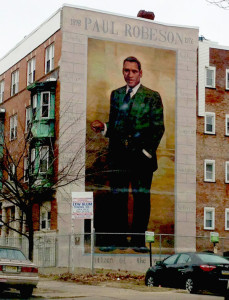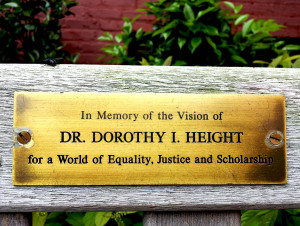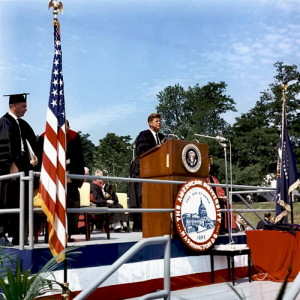Observe good faith and justice towards all Nations; cultivate peace and harmony with all.
George Washington’s 1789 Farewell Address
 AMP and the New American Narrative
AMP and the New American Narrative
The way in which a nation’s story is told – the parts of its history that are repeated, taught to school children and committed to memory – contributes significantly to the self-understanding and shared vision of that nation’s people. If we base our view on the evening news, it might appear that the history of the United States is the history of discord and war. But throughout the history of America, there has been another ever-present and profound dynamic – often overlooked – that promotes peace.
The American Museum of Peace (AMP) will develop this new American narrative – a narrative of American peacemaking – the story throughout our history of Americans committed to peace – peace with ones own conscience and in relationship with others. The unifying theme of this new narrative is that the original vision and founding values of America — from the beginning — were conceived as a way to promote peace.
 The story of American peacemaking – from that time to this – has been the story of the efforts of Americans working to fulfill and extend that original intention. Those who have shaped this story of peacemaking include not only professional peacemakers, but ordinary citizens, public officials, religious leaders and people with military backgrounds. They include the full range of Americans who have acted for peace – some in ongoing ways, others only at particular moments during the course of their personal and professional lives. Where possible, the story will recount the ideals, aspirations, and motives of the players in their own words.
The story of American peacemaking – from that time to this – has been the story of the efforts of Americans working to fulfill and extend that original intention. Those who have shaped this story of peacemaking include not only professional peacemakers, but ordinary citizens, public officials, religious leaders and people with military backgrounds. They include the full range of Americans who have acted for peace – some in ongoing ways, others only at particular moments during the course of their personal and professional lives. Where possible, the story will recount the ideals, aspirations, and motives of the players in their own words.
This new narrative will help us remember and reflect upon important parts of our past – too often forgotten — and inspire us to recommit to the values and vision on which America’s greatness is based as we work for a more perfect union and a more peaceful world.
There is a principle which is Pure,
Placed in the human mind,
Which in different places and ages hath had different names.
It is, however, Pure
And Proceeds from God.
It is deep and inward, confined to no forms of religion
Nor excluded from any,
Where the heart stands in perfect sincerity.
In whomsoever this takes root and grows,
Of what nation soever,
They become brethren in the best sense of the expression.
Using ourselves to take ways which appear most easy to us,
When inconsistent with that Purity which is without beginning,
We thereby set up a government of our own,
And deny obedience to Him whose service is true liberty.
John Woolman (1720 – 1772)
George Washington used this chair for nearly three months of the Federal Convention’s continuous sessions. James Madison reported Benjamin Franklin saying, “I have often looked at that behind the president without being able to tell whether it was rising or setting. But now I… know that it is a rising…sun.“
I have, therefore, chosen this time and this place to discuss a topic on which ignorance too often abounds and the truth is too rarely perceived – yet it is the most important topic on earth: world peace.
What kind of peace do I mean?
What kind of peace do we seek?
Not a Pax Americana enforced on the world by American weapons of war. Not the peace of the grave or the security of the slave.
I am talking about genuine peace, the kind of peace that makes life on earth worth living, the kind that enables men and nations to grow and to hope and to build a better life for their children — not merely peace for Americans but peace for all men and women — not merely peace in our time but peace for all time.
John F. Kennedy (1917 – 1963)
As governments are made and moved by men, so by them they are ruined too. Wherefore governments rather depend upon men than men upon governments. Let men be good, and the government cannot be bad. If it be ill, they will cure it. But if men be bad, let the government be ever so good, they will endeavor to warp and spoil it to their turn.
William Penn (1644 – 1718)
Preface to Frame of Government of Pennsylvania, 1682


